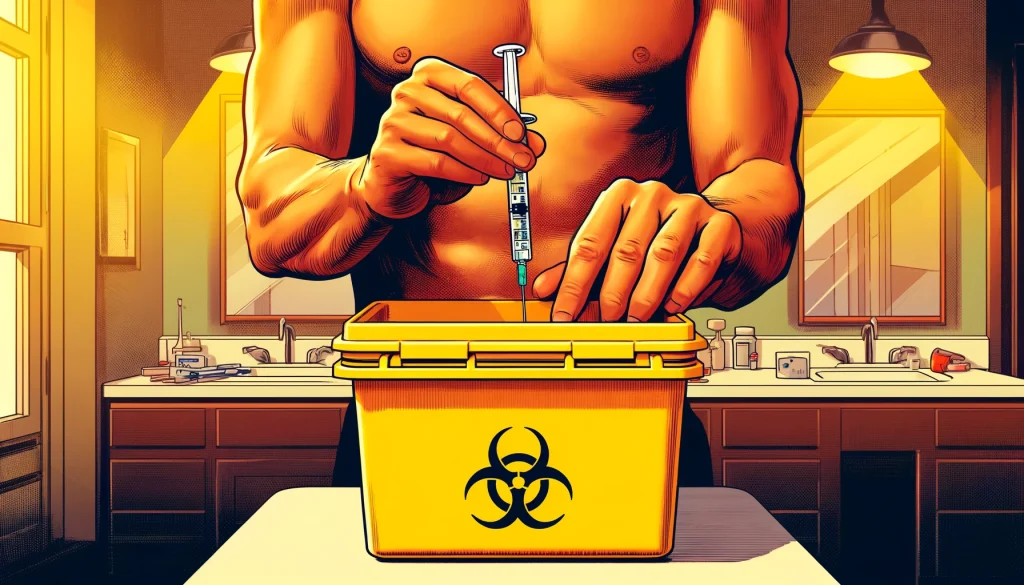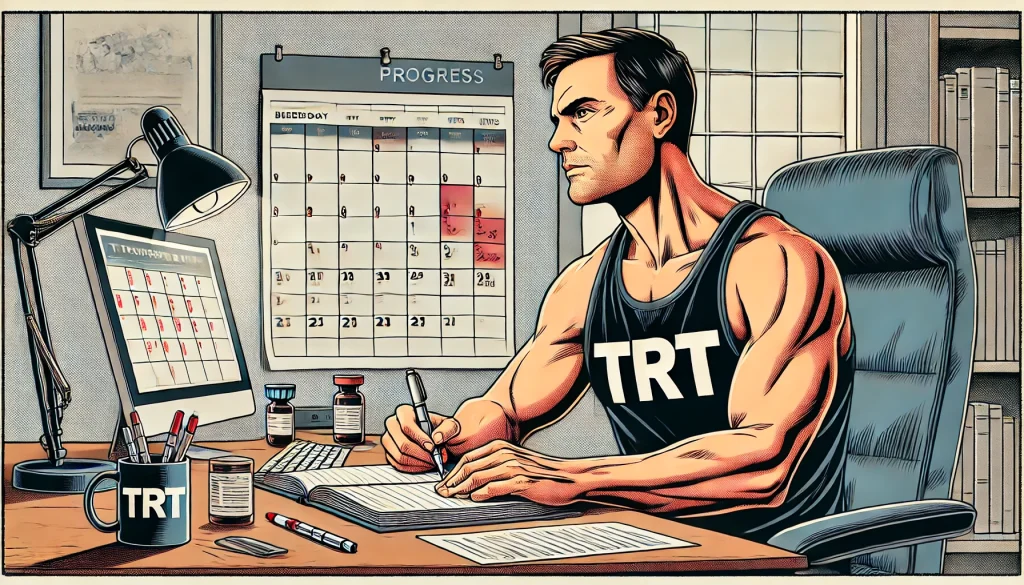10 Essential Tips for Safe DIY TRT

Last Updated On March 29, 2025
Testosterone Replacement Therapy (TRT) can transform your life when done safely and responsibly. However, starting TRT on your own (DIY TRT) requires careful planning, reliable information, and consistent monitoring to ensure positive outcomes. Follow these 10 essential tips to optimize your DIY TRT journey while minimizing risks.
1. Understand the Basics of Testosterone
Testosterone plays a critical role in maintaining energy, mood, muscle mass, and overall vitality. Low testosterone can cause symptoms like fatigue, reduced libido, and depression. Educate yourself on its functions to make informed decisions about TRT.
Our Complete Beginner’s Guide To TRT is the perfect place to start!
2. Get Comprehensive Baseline Bloodwork
Before starting TRT, comprehensive bloodwork is non-negotiable. This establishes your baseline hormone levels and identifies potential issues to address beforehand.
Key Tests to Include:
- Total Testosterone
- Free Testosterone
- Estradiol (E2)
- SHBG (Sex Hormone-Binding Globulin)
- Complete Blood Count (CBC)
- Liver and Kidney Function Tests
Pro Tip: Retest after 4-6 weeks on TRT to track your progress and fine-tune your protocol.
3. Source Testosterone Safely

Quality and safety should never be compromised. Options include:
- Prescriptions: The safest option for legitimate testosterone.
- Compounding Pharmacies: Tailored dosages and formulations.
- Vetted Online Sources: Use only trusted vendors with verified reviews and batch-tested products.
Avoid: Vendors with poor reputations, no verifiable credentials, or unclear labeling.
4. Start with a Conservative Dosage
For most beginners, a starting dosage of 80-150 mg of testosterone per week is effective. Monitor your body’s response and adjust gradually if needed.
Pro Tip: Injecting smaller, more frequent doses (e.g., twice weekly) reduces hormonal fluctuations.
Bonus: You can use our TRT Dosage Calculator to determine your starting dose.
5. Choose the Right Injection Method and Needle Size
The success of TRT depends on selecting the proper injection method and needle size:
- Intramuscular (IM): Involves deeper injections into large muscles such as the glutes or quads. Use 22-27 gauge needles, 1 to 1.5 inches in length for effective delivery.
- Subcutaneous (SubQ): Involves shallower injections just beneath the skin, commonly in the abdomen. Use 27-30 gauge needles, 0.5 inches in length.
Both methods are effective, but your choice should depend on your comfort level, medical advice, and personal experience.
6. Use Sterile Techniques to Avoid Infections

Always follow proper injection protocols to prevent complications:
- Use alcohol swabs on vials and skin.
- Rotate injection sites to avoid scar tissue.
- Dispose of needles in sharps containers.
7. Monitor and Manage Side Effects
Common side effects include acne, elevated estradiol, and increased red blood cell count. Minimize these risks by:
- Monitoring bloodwork regularly (every 3-6 months).
- Considering aromatase inhibitors (AIs) if estradiol rises significantly and high-estradiol related symptoms begin to manifest .
Pro Tip: Many side effects stabilize within the first few months of consistent therapy. Interventions like aromatase inhibitors and blood donation should only be considered in rare cases when additional symptoms manifest.
8. Supplement Your TRT Protocol
Support your overall health with supplements that complement TRT. Essential options include:
- Vitamin D3
- Zinc
- Omega-3 Fatty Acids
- Magnesium
These supplements help optimize hormone function and support general well-being.
For a full breakdown of the best supplements for TRT, check out our detailed guide The Best Supplements for Testosterone Optimization and Men’s Health.
9. Keep Detailed Records of Your Progress
Tracking your TRT journey helps you understand what works and what doesn’t. Record:
- Dosages and injection dates.
- Bloodwork results.
- Notable changes in energy, mood, or physical performance.
Pro Tip: Use a spreadsheet or app for consistent tracking. You can use the Free Tracking Templates we have created for you.
Bonus: Track your injections and dosages with our Injection Log and your bloodwork results with our Bloodwork Log. You can also track your energy and mood in our Symptom Tracker.

10. Stay Consistent and Patient
TRT isn’t a quick fix – results take time. Be patient with your protocol and make adjustments based on bloodwork and how you feel.
Pro Tip: Always consult with knowledgeable professionals if you’re unsure about adjustments or complications.
Final Thoughts
Safe DIY TRT is achievable with careful planning, diligent monitoring, and a commitment to doing it right. By following these 10 tips, you can minimize risks and maximize the benefits of your testosterone therapy journey.
Grab our Free Templates for DIY TRT to log and track your details on your TRT journey.